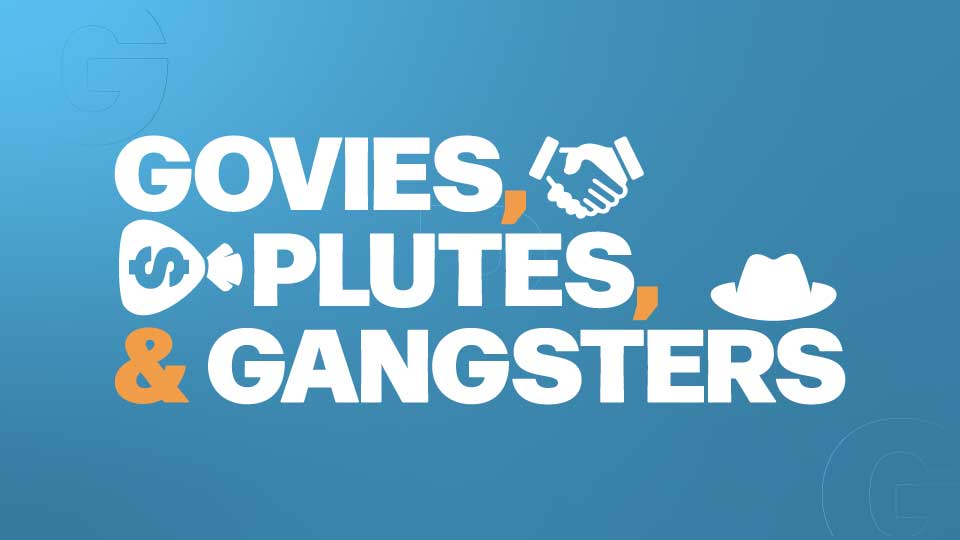
Click on the play button to listen to the audio version.
About a year ago, I was convinced by some of my closest friends that I should do a podcast. Today it seems like everyone has a podcast, and frankly, 99% of them aren’t very good. I wasn’t sure I could do much better, but I realized I do have some ideas that some people have found interesting in the past. I also have had the privilege of meeting and knowing some extraordinary people. It is rare that I go a week without speaking with a CEO, politician, or notable celebrity. There have been times when I have thought to myself that I wish more people could have been part of the conversation I just had.
Over the past couple of years, the concept of wealth building, and more specifically the idea of closing the Hispanic wealth gap has consumed a lot of my time. I started NAHREP 23 years ago to improve Hispanic homeownership, but I have frequently said that had I instead started an organization to improve Hispanic economic mobility, I would have begun with homeownership. My ideas around homeownership have evolved over the years. Homeownership is not the end game, it’s a stepping stone, a bridge and a gateway to a better quality of life. The concept of wealth is bigger, especially when you understand the true benefits of wealth and prosperity.
I decided that my first podcast would be about closing the Hispanic wealth gap, and I would interview people who are extraordinary achievers and who have ideas that I think are worth sharing with my audience. My ideas around increasing Hispanic wealth revolve around three ideas. First is public policy matters. Let’s look at homeownership as an example. What would homeownership rates be in America without FHA, Fannie Mae, or Freddie Mac? I think anyone who understands what FHA these agencies actually do, would agree that without government support for homeownership, interest rates and down payment requirements on mortgages would be much higher, and the qualification criteria would be much tougher. Banks are also required to do loans to low- and moderate-income borrowers because of a law called the Community Reinvestment Act (CRA). How much lending would banks do to first-time buyers without CRA? For everyone who thinks that government policy doesn’t matter, read up on redlining policies in the mid-20th century. Second, is that capital is the lifeblood of any growing business. The first rule of capitalism is that capital should flow to where the growth is. Hispanics account for 80% of all new business growth in America. Hispanics are prolific entrepreneurs, it’s in our DNA, but less than 2% of business capital flows to Hispanic-owned businesses. We need to change that. Thirdly, entrepreneurship can create multiplier effects in terms of wealth building. When a Hispanic-owned company achieves scale, not only does it benefit the founders, employees, and investors in that company, it attracts more capital to other Hispanic entrepreneurs. So it creates a multiplier effect. I have often said that Oprah Winfrey and Tyler Perry have done more for Blacks in entertainment than 50 years of political advocacy. It’s because they showed the market there was money to be made by investing in entertainment targeting Black consumers. If we want to change the trajectory of Hispanic wealth, we need a lot of bad-ass Hispanic entrepreneurs.
This leads me back to my podcast that I have titled ‘Govies, Plutes, and Gangsters’ to represent my three ideas: government policy, capital connections, and wild entrepreneurs. So far, I have recorded eight interviews with a CEO, an investment banker, an author, a venture capitalist, a real estate investor, a couple of entrepreneurs, and one billionaire celebrity. I think they’re pretty interesting and I’m excited to do more. I will also be adding a few of my older interviews including President George W. Bush and superstar filmmaker Robert Rodriguez. Closing the Hispanic wealth gap won’t happen overnight, but there is no reason we can’t do it. Nobody questions the work ethic of most Hispanic Americans, but knowledge is power, and if my podcast can help close the knowledge gap, I will be pleased. Please check out the first four episodes of G, P, and G’s here. Let me know what you think.
